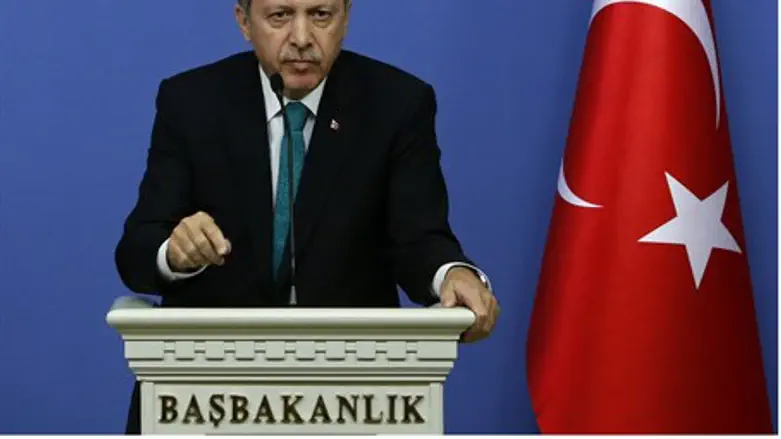
Turkey's parliament ordered to close hundreds of private secondary schools on Friday, many of which are under the auspices of Turkish Prime Minister Recep Tayyip Erdogan's rival Fethullah Gulen, according to the Washington Post.
Lawmakers set a Sept. 1, 2015 deadline for the closures. The exclusive schools are attended by thousands of students looking to win highly-coveted spots at Turkey's better colleges and universities.
“Pull your kids out, if they go to these schools. State schools are enough,” Erdogan said Saturday at a campaign rally in the western town of Denizli ahead of local elections set for March 30. “They have sucked like leeches. Leeches are more virtuous: Leeches suck dirty blood, while they suck clean blood and hold sessions cursing me, my wife, my children, my administration.”
The news is the latest development in a corruption scandal which erupted on December 17 with the arrest of businessmen close to Erdogan and three ministers' sons. In the wake of the scandal, Economy Minister Zafer Çağlayan, Interior Minister Muammer Güler and Environment and Urbanization Minister Erdoğan Bayraktar resigned; calls were made for Erdogan to step down after an 11-year rule; and Turkey has been thrown into a state of unrest.
Erdogan's crackdown began almost immediately afterward. In under three months, Erdogan's government has replaced half its cabinet, purged hundreds of police, sought tighter control of the courts and fired executives from banks, communications networks and national television stations.
In addition, Erdogan has faced protests over a new law that would tighten controls over web use.
Last week, riots broke out in Istanbul's Taksim Square over the new censorship laws, which allow the local the Telecommunications Communications Presidency (TIB) to demand that Internet providers block pages deemed insulting or considered an invasion of privacy. Protests over various aspects of the corruption scandal - censorship, measures to release prisoners close to Erdogan, and the crackdown on political opponents - have been ongoing.
Despite the protests on the street, Turkey's president Abdullah Gul signed the law into force last week.